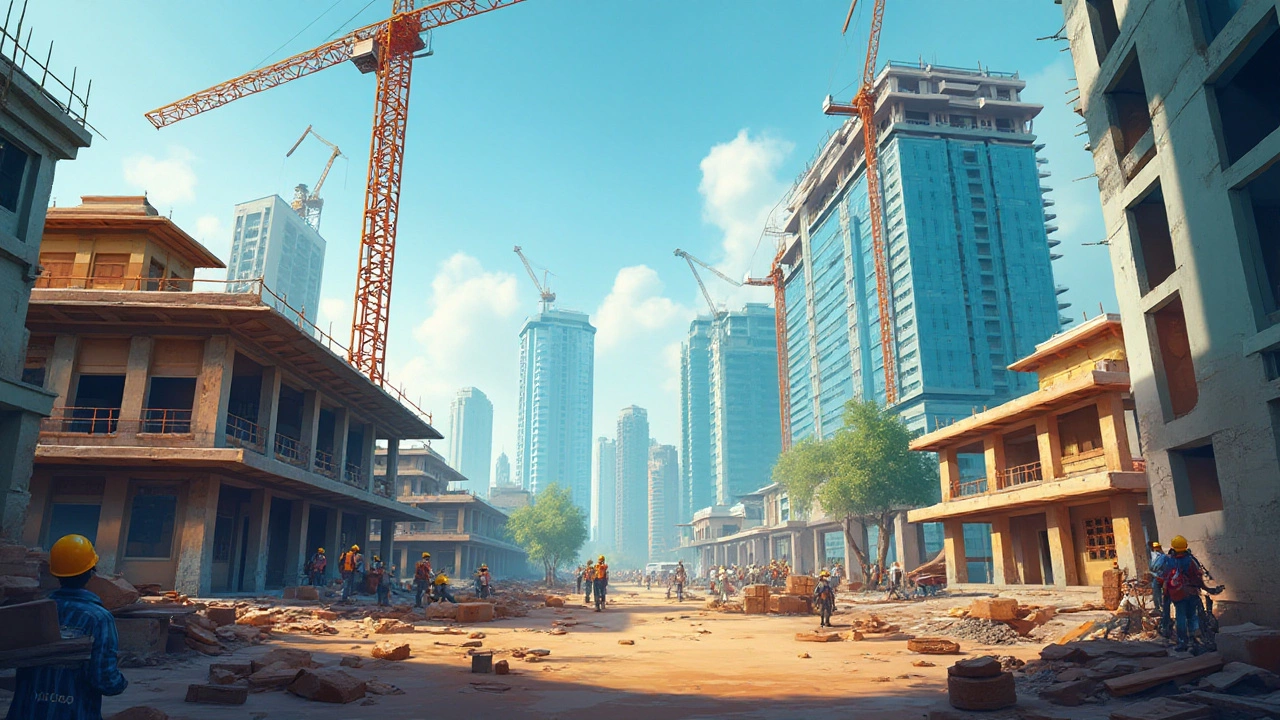Building Projects: Practical Tips & Ideas for Every Renovation
Starting a building project can feel like stepping into a maze. You’ve got ideas, a budget, maybe a Pinterest board, but the next steps often get fuzzy. The good news? You don’t need a degree in engineering to keep things on track. Below are the core things you should sort out before the first nail hits the wall.
Planning Your Project Right From the Start
First off, write down exactly what you want. Is it a new kitchen, a loft conversion, or a simple extension? Being crystal clear helps you size up costs, time, and the kind of professionals you’ll need. Grab a spreadsheet or a free app, list every major item – demolition, foundation work, electrical, tiles, fixtures – and attach an estimated cost. Add a 10‑15% buffer for the surprises that always pop up.
Next, check local regulations. Some municipalities require permits for anything bigger than a coat of paint. A quick call to the building office can save you weeks of delay and potential fines. Keep copies of all approvals in a folder; it’s easier to share with your contractor later.
Choosing the right builder matters more than picking the cheapest quote. Look for a licensed building contractor with solid references. Ask for a detailed contract that breaks down each phase, payment schedule, and who’s responsible for cleanup. A good contractor will also suggest cost‑effective solutions, like using prefabricated wall panels or a bump‑out addition instead of a full‑scale extension.
Common Challenges and Smart Solutions
Foundations are the silent heroes of any project. If you’re repairing cracks, timing matters – early spring or late autumn usually offers stable ground conditions. Drainage fixes, carbon‑fiber straps, or pier stabilization can extend the life of an old slab without costly lifting equipment.
Loft conversions are a popular way to grab extra space. Before you start, verify ceiling height, roof pitch, and load‑bearing walls. Insulation and ventilation are key; a well‑ventilated attic prevents moisture build‑up, which can lead to mold – a problem many new‑build owners face.
When it comes to interior finishes, tiles make a huge impact. KSR Ceramics offers a range of durable, stylish options that suit both budget and high‑end projects. Choose larger formats for a seamless look, or textured tiles for slip‑resistance in wet areas. Pair the right tile with proper underlayment and you’ll avoid future cracking.
Extensions can quickly balloon in cost if you forget to plan for utilities. Route plumbing, electricity, and HVAC before the walls go up. This prevents you from having to cut through finished surfaces later – an avoidable headache and expense.
Finally, keep communication open. Weekly check‑ins with your contractor help catch issues early. Use photos, a simple checklist, and note any changes to scope or budget. Transparent dialogue keeps the project moving and builds trust.
Building projects don’t have to be overwhelming. By setting clear goals, getting the right permits, hiring a reputable contractor, and tackling common challenges with proven tricks, you’ll stay on budget and finish on time. Ready to turn those blueprints into reality? Start with a solid plan, and the rest will fall into place.
Differences Between Commercial and Industrial Construction: What's What?
Ever wondered how commercial and industrial construction differ? They're both big and important, but they serve different needs. Commercial construction involves everything from shops to skyscrapers, while industrial construction focuses on factories and energy plants. This article dives into what makes each one unique, providing insights and tips if you're planning a building project.
Continue ReadingIs Construction Commercial or Non-Commercial?
Ever wondered what makes a construction project commercial or non-commercial? This article explores the differences, highlighting essential factors like purpose, scope, and funding. Learn about the types of projects, the specifics of commercial construction, and tips for navigating the industry. Gain insight into how these projects impact communities and the economy, making this complex topic digestible and insightful.
Continue ReadingCommercial vs. Residential Construction: Making the Right Choice
Choosing between commercial and residential construction can be like comparing apples and oranges. Each comes with its own set of challenges and benefits. From zoning laws to profit margins, understanding these differences can ensure you make the right decision for your project. Whether you’re planning a small home renovation or a large office building, it's crucial to consider the costs, regulations, and potential for returns.
Continue ReadingKey Differences Between Residential and Commercial Construction
Understanding the major differences between residential and commercial construction is crucial for professionals in the building industry. This article explores the distinct features, purposes, and regulations that separate these two types of construction projects. From design considerations to the types of materials used and the legal requirements, each aspect plays a significant role in how buildings are designed and constructed. Readers will gain insights into the unique challenges and opportunities associated with both residential and commercial projects. This knowledge is essential for anyone involved in planning, designing, or managing construction activities.
Continue Reading


